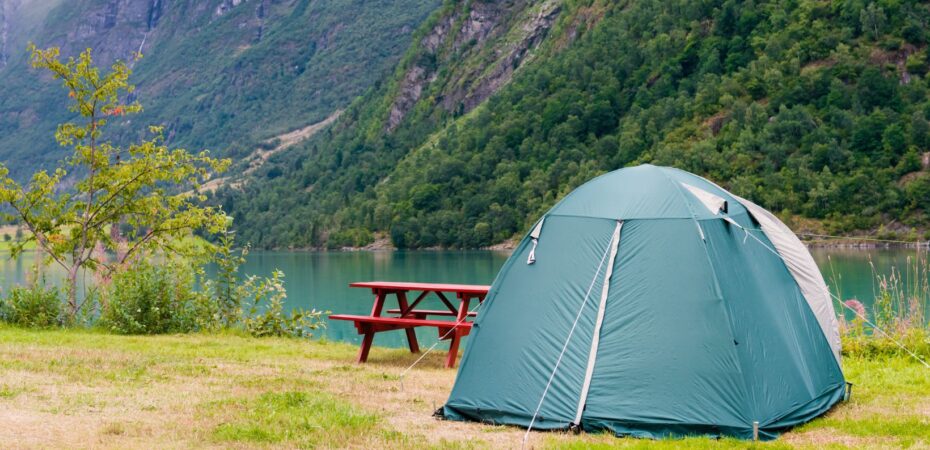Camping is a fantastic way to reconnect with nature and enjoy the great outdoors. However, it’s essential to be mindful of our environmental impact while enjoying these natural spaces. By adopting sustainable camping practices, we can minimize our footprint, preserve the beauty of our surroundings, and ensure that future generations can continue to enjoy these outdoor adventures. In this article, we will explore some valuable tips for practicing eco-friendly camping, including the principles of Leave No Trace, minimizing waste, reducing your environmental impact, and embracing sustainable gear choices.
Embrace Leave No Trace Principles
Leave No Trace (LNT) is a set of seven principles designed to guide outdoor enthusiasts in minimizing their impact on the environment. By following these principles, campers can enjoy the wilderness responsibly. Let’s delve into each principle:
- Plan Ahead and Prepare: Before embarking on your camping trip, research the area’s regulations and potential environmental concerns. This knowledge will help you make informed decisions about gear, activities, and camping locations. Pack accordingly, bringing reusable and lightweight gear to minimize waste.
- Travel and Camp on Durable Surfaces: Stick to established campsites and trails to prevent soil erosion and damage to vegetation. Avoid creating new trails or trampling on fragile ecosystems. Stay on durable surfaces such as rock, gravel, or established campsites to minimize your impact.
- Dispose of Waste Properly: Pack out everything you bring in, including food scraps, litter, and personal hygiene items. Dispose of waste in designated trash receptacles or recycle if possible. Be sure to leave the campsite cleaner than you found it.
- Leave What You Find: Preserve natural beauty by not disturbing or removing plants, rocks, or artifacts. Leave the area as you found it for others to enjoy. Appreciate the natural wonders without altering or taking them home as souvenirs.
- Minimize Campfire Impacts: Campfires can have a significant impact on the environment. Use designated fire rings or existing fire pits for campfires. Use only fallen wood for fuel, or consider using a portable camping stove instead. Practice responsible fire safety and ensure the fire is completely extinguished before leaving the campsite.

- Respect Wildlife: Observe animals from a distance and never feed or approach them. Give them the space they need to thrive in their natural habitat. Store food securely to avoid attracting wildlife and causing potential harm to both animals and humans. Be a responsible steward of wildlife conservation.
- Be Considerate of Other Visitors: Respect fellow campers’ privacy and enjoyment of the outdoors. Keep noise levels down and follow campground rules and regulations. Enjoy the company of others while being mindful of their desire for peace and tranquility.
Minimize Waste
Reducing waste is a crucial aspect of sustainable camping. By being conscious of our consumption and disposal habits, we can greatly reduce our environmental impact. Here are some tips to help you minimize your waste:
- Pack Reusable Supplies: Opt for reusable cutlery, plates, and cups instead of disposable ones. Use refillable water bottles to reduce plastic waste. By bringing along a battery-operated blanket, you can stay warm without relying on disposable heating sources.
- Choose Sustainable Toiletries: Use biodegradable soap, shampoo, and toothpaste to minimize the impact on water sources. Avoid products containing harmful chemicals. Consider using eco-friendly alternatives such as bamboo toothbrushes and reusable menstrual products.
- Practice Smart Cooking: Plan your meals to avoid excess food waste. Opt for fresh and locally sourced ingredients when possible. Pack reusable containers for leftovers. Use eco-friendly cleaning products for dishes and utensils.
- Compost: If permitted, set up a small compost bin for organic waste. This not only reduces landfill waste but also provides nutrient-rich compost for plants. Properly dispose of compostable items and avoid contamination.

- Recycle Properly: Separate recyclables from general waste and make use of recycling facilities available at campsites. Ensure that items are clean and dry before recycling. Follow local recycling guidelines to maximize the effectiveness of recycling efforts.
Reduce Your Environmental Impact
Beyond waste reduction, there are additional steps you can take to reduce your overall environmental impact while camping:
- Conserve Water: Use water sparingly by taking shorter showers and turning off the tap when not in use. Collect rainwater for non-potable purposes, such as cleaning or washing dishes. Use water-efficient camping gear and consider waterless hygiene products.
- Use Eco-Friendly Lighting: Choose LED or solar-powered lights for camping. They are energy-efficient and have a minimal impact on the environment. Avoid using excessive artificial lighting and embrace the natural darkness. Enjoy the beauty of starry nights and reduce light pollution.
- Respect Quiet Hours: Be mindful of noise pollution, especially during quiet hours. Keep music and conversations at a reasonable volume to respect both fellow campers and wildlife. Embrace the sounds of nature and allow others to experience the serenity of the outdoors.
- Choose Sustainable Gear: When purchasing camping equipment, look for eco-friendly options made from recycled or sustainable materials. Consider investing in solar-powered chargers for your electronic devices. Opt for battery-operated gear instead of relying solely on disposable batteries.
- Enjoy Natural Surroundings: Engage in activities that appreciate and connect you with nature, such as hiking, bird watching, or stargazing. Leave the environment undisturbed and take only photographs and memories. Practice mindfulness and gratitude for the natural wonders around you.
In conclusion, sustainable camping is all about enjoying the beauty of nature while leaving minimal impact on the environment. By embracing Leave No Trace principles, minimizing waste, reducing our overall environmental impact, and making sustainable gear choices, we can ensure that future generations can experience the wonders of camping. So, pack your reusable supplies, follow eco-friendly practices, and let the battery-operated blanket keep you warm as you embark on your sustainable camping adventures. Together, we can make a difference and preserve our precious natural resources for years to come.


 By
By 



